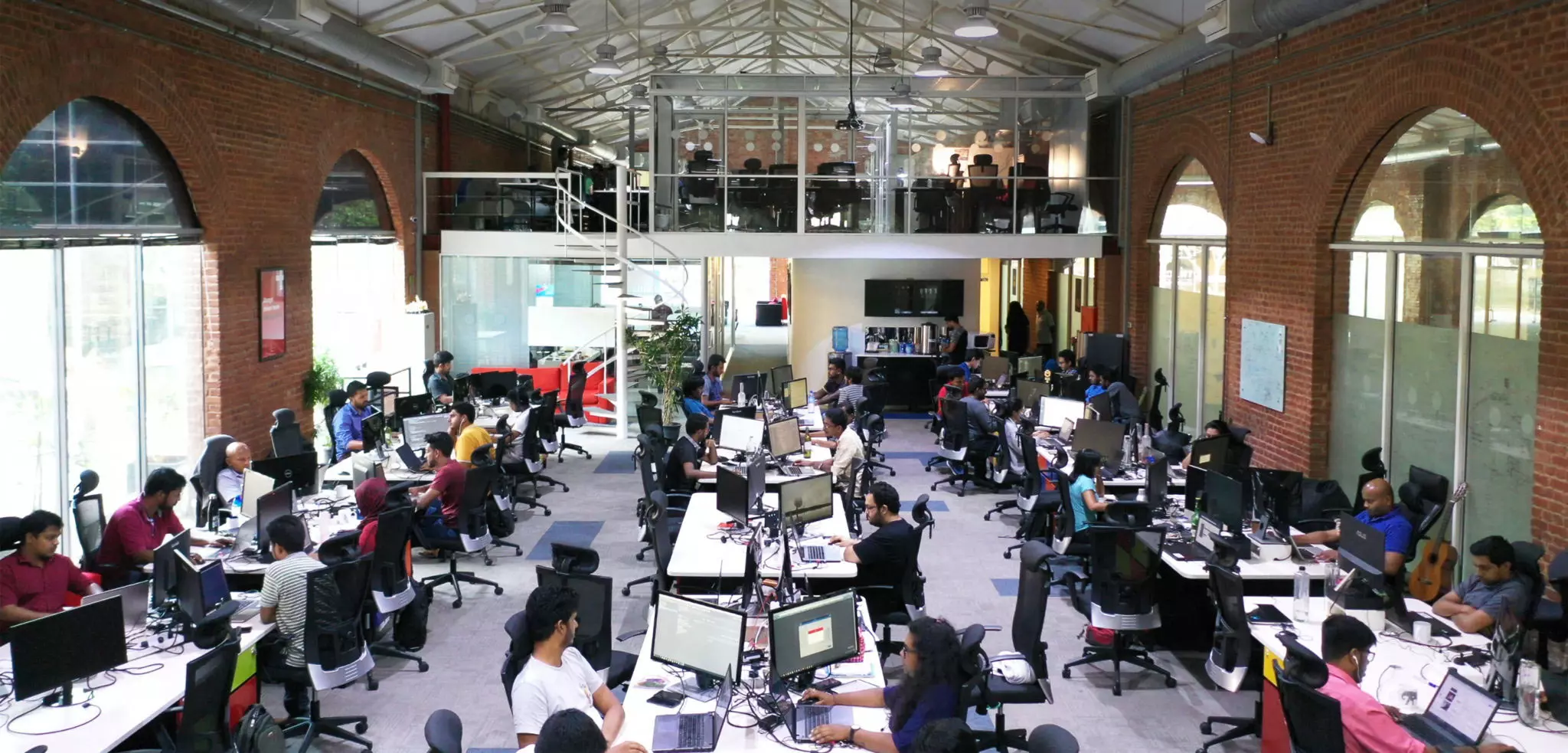Businesses in the service industry quite often depend on project managers to keep everything running smoothly. A project manager is often the face of the company to the client, as well as the troop leader of a platoon of developers. This applies at Calcey, too.
Rajitha Egodaarachchi is one of Calcey’s senior most project managers. Having first joined us as a developer, Rajitha changed tracks to become a project manager. Today, he is one of two program managers at Calcey. In his role, he is essentially a project manager of project managers.

Q: Can you tell us a little bit about your role as program manager at Calcey?
We created the program manager role at Calcey for one important reason, and that is to ensure that projects are kept on schedule—given the demanding nature of the clients we work with—and to help us initiate corrective actions as necessary, proactively.
As program manager, I have a team of project managers reporting to me. I mentor them and guide them as necessary so that they can do their job better. In a way, I’m here to help them help their clients. I also manage a couple of projects on a hands-on basis, which is another interesting part of my role.
Q: How did you get into project management? Is there a set path which others can follow?
As far as the path is concerned, a lot depends on the firm you work for. At some of the larger software engineering firms, project management is a dedicated career path. At boutique firms, such as Calcey, the role of a project manager is combined with that of a business analyst. I prefer the latter because for someone like me, the duality of the role is very stimulating.
As to how I got into project management, I was a developer when I first joined Calcey. Since Calcey has a relatively flat structure, it allowed me to try my hand at Project Management after spending a few years as a developer. There was no great epiphany or anything as such.
However, it does help to possess some personal attributes, like being methodical and organised. Not being in possession of such attributes may actually hurt your chances of becoming a project manager.
Q: What are the most challenging aspects of your job?
One of the biggest challenges is ensuring timely delivery of projects, while keeping what we call ‘scope creep’ at bay. We basically operate on an outsourced delivery model, and sometimes, clients try to squeeze in as many development needs as possible at every stage of the process. When this happens, there is a risk of the project exceeding its budget, cost, and time parameters. Obviously, that’s an undesirable outcome. So, it is my responsibility to prevent this from happening.
In terms of everyday workload, it is the scrum planning day that is most hectic. Tools like Jira, Google Hangouts, Slack, and Evernote help me keep track of things, day in, day out.
In my opinion, what I would call the No. 1 challenge is managing people. Be it the developers or clients, I need to be empathetic, but also firm and decisive when necessary. It’s a balancing act, really. Being a program manager is no walk in the park, but it’s extremely rewarding when you see a project being executed on time, despite any challenges that come our way.
